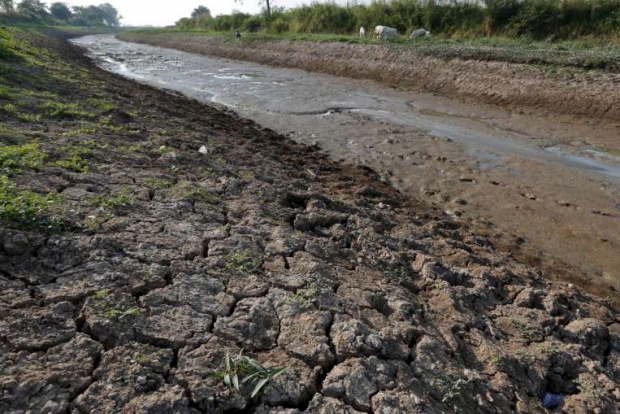Thailand's Songkran Water Festival Begins Amid Regional Drought | NBC News
The following article was originally published by NBC News.
BEIJING — Thailand kicked off the world's biggest water fight Wednesday, with participants — willing or otherwise — subjected to attacks from hoses, balloons and water pistols in streets across the country.
The Songkran festival celebrates the country's New Year and the water is said to clean people of their sins and misfortunes. It is described by Lonely Planet as "part a time of respect, and part riot."
But this year there's an unhappy undercurrent to the joyous mayhem: The region is suffering its worst drought in decades.
Critics say that rising temperatures have been exacerbated by China's extensive damming of the Mekong River — which also runs through Myanmar, Laos, Thailand, Cambodia, and Vietnam.
"With six dams and their gigantic reservoirs … China has absolute control over the Mekong," said Pianporn Deetes, coordinator for California-based non-profit International Rivers.
Worst hit has been Vietnam, where the water level has dropped to its lowest in 90 years and nearly 1 million citizens do not have enough to drink, according to a report by the United Nations Disaster Risk Management Team.
Thailand has attempted to save water by cutting its festival from four to three days and imposing a curfew at night, which it says will save as much as 5 billion liters of water. China also agreed last month to release more water from a giant dam in Yunnan province.
"It goes without saying that friends should help each other when help is needed," Chinese Foreign Ministry spokesman Hong Lei said at the time.
This emergency release reached the Mekong Delta this week and should help beat back the salty waters of the South China Sea. However, critics say that ordinary civilians are still suffering.
"While the Mekong may be used as a platform for diplomacy, this operates at the level of governments," Deetes said. "Meanwhile those who actually pay the price are the rural poor, riverine villagers living downstream, who have no voice in the decision-making process and who are not informed or consulted."



